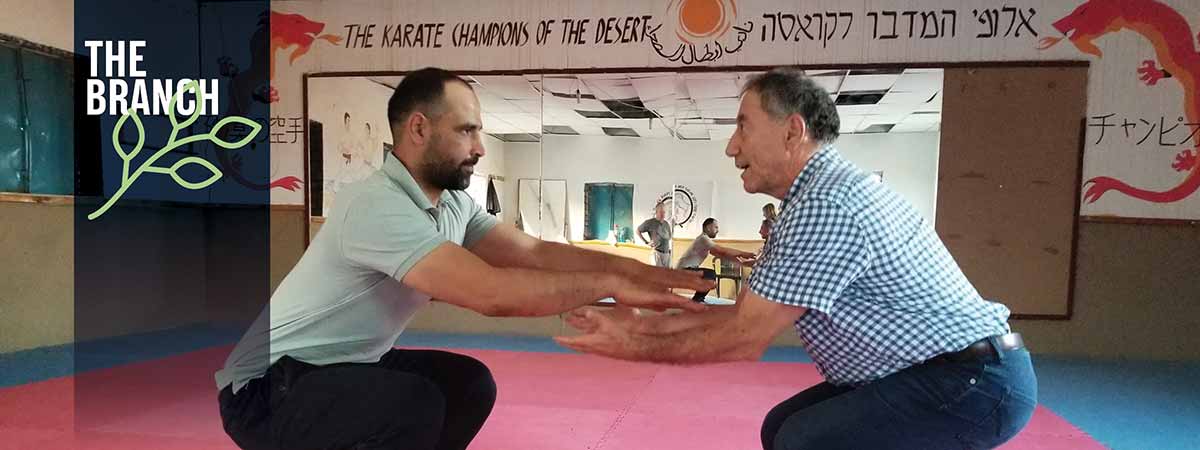Episode 11: Karate for Peace
Danny Hakim and Hazam Abu Qwedar are longtime friends and martial arts instructors. Through the art of karate, they're showing kids in Israel -- Jewish and Bedouin -- a new approach to coexistence.
Episode 11: Karate for Peace
When Hazam Abu Qwedar was 13-years-old and living in the same Bedouin village deep in Israel’s Negev desert where he still lives, he stumbled across the movie “The Karate Kid” playing on the family television set. He knew nothing about karate, but watching the actors spin around with kicks, punches and lessons of respect and order, he found himself transfixed and determined. He, too, would become a Karate kid.
He went to his parents and asked to start lessons. But they, too, had never heard of karate and dismissed his request, asking how in the world karate would ever help him in life. So he set out to find a class on his own and when he found one in a nearby town, he would walk alone along a sun-baked five mile stretch of highway to get there and back.
It was a world away, at the bottom of the globe in Australia that at the age of 13, a Jewish boy named Danny Hakim, the son of Egyptian-Jewish immigrants, also discovered karate. And like Hazam, that discovery would change the course of his life. Both became black belts who competed internationally, and both went on to become karate instructors working with kids and young people.
Twelve years ago, they met when Danny immigrated to Israel and founded an organization called Budo for Peace. It uses traditional martial arts to connect boys and girls in Israel from diverse backgrounds, promoting a vision of living equally and peacefully in a shared society. Hazam became Danny’s partner in bringing Bedouin children into the fold of Budo for Peace. Today, Jewish and Bedouin children train together regularly and have traveled as far as Australia to compete as a team, representing Israel. There will be a group competing together at the July 2019 Karate World Championships in the Czech Republic.
Hazam is tall and soft-spoken, where Danny is a talkative extrovert who loves to connect with people. Over the years, he’s brought dozens of visitors to the dojo, the karate studio which Hazam has built on the edge of his village, including diplomats and instructors from the region.
Danny breaks down the basic philosophy this way: “You go to open your hand and open your mind. It's like you have to start with an empty glass. And if you don't set an empty glass you can't fill it up. So the same with the heart - you've got to start with an open heart like an open hand…when we punch and kick together and sweat together and ache together and be in pain together. It's something that we're doing together. I mean, everybody breathes the same air.”
Karate, the two argue, is an example of how sports can provide a common ground for diverse groups who don’t usually interact much, if at all. The Jewish and Bedouin children they train live very different lives outside of the dojos, but when they come in to work together they are no longer defined according to labels of Jewish, Palestinian, Arab, religious or secular. Instead, they are grouped together as the yellow belts or the red or black belts.
Danny and Hazam point to other conflict areas like Northern Ireland, where grassroots connections, often through sports, have become a political force for change.
They are hoping to share this vision on a global stage next year at the 2020 Olympics in Tokyo. Danny envisions a group of Jewish and Arab children from Budo for Peace demonstrating a peace “kata”, a synchronized set of movements, as part of the Olympic festivities. The goal, he says, is to demonstrate how the age-old Japanese budo philosophy can promote peace not just here, but anywhere people are separated by fear, ignorance and hatred.
Go behind-the-scenes with host Dina Kraft: check out these photos from episode 11



